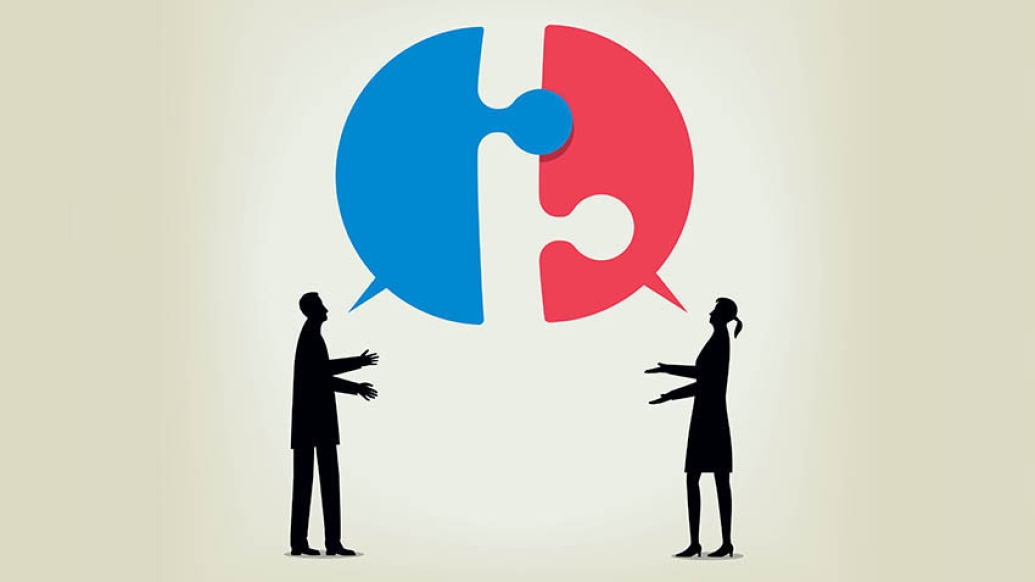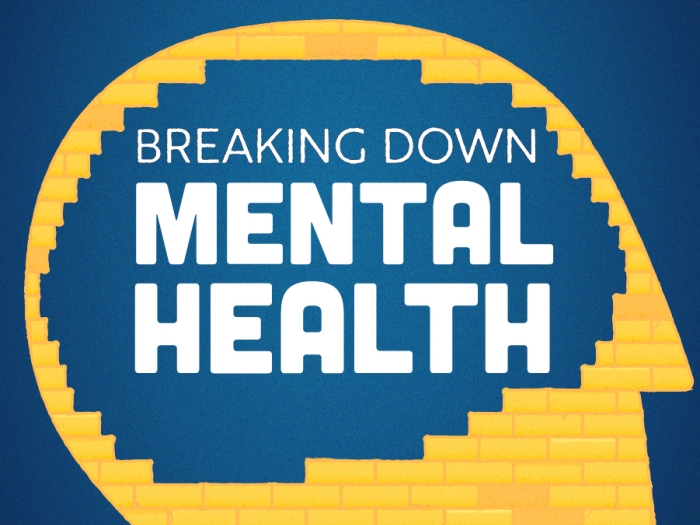No matter where you fall on the political spectrum, a psychiatrist offers strategies for how to be mindful of depression and anxiety symptoms around the topic.
10:30 AM
Author |

No matter what your political beliefs or affiliations, it's safe to say all Americans are now living through a unique moment in our nation's history. The past few months have brought daily headlines that have added to the intense feelings that many people of all convictions have felt since the last presidential election—especially younger people who are thinking about what their future might hold.
For some, seeing news about the turmoil in Washington, D.C., with major headlines every day, may cause distress. Others, on all sides of the current debates, may feel personally attacked by major ideological differences among their fellow Americans, or the actions of people at different levels of government. And others may perceive opposing views from friends or family members as a sense of betrayal.
Even apolitical Americans may experience second-hand stress from the constant exposure to political turmoil and arguments between individuals or groups. And the 24/7 news and social media cycles don't help, making the entire matter seem impossible to avoid.
Signs of political fatigue
Now with the holidays around the corner, worries might be growing that reunions with relatives and friends will include conversations about more than that amazing stuffing recipe.
"People talk about traditional ways they share holidays with family, and how now, given this political climate, they're changing plans to avoid meeting with family members who have differing views," said Michelle Riba, M.D., M.S., psychiatrist and associate director of the University of Michigan Comprehensive Depression Center.
Riba says these conversations may be challenging to entertain and you may not realize how they might be effecting your health. Signs that you're overloaded and overwhelmed by political content, or national and world events, include:
-
A higher blood pressure than usual
-
Weight gain or loss
-
Anxious or worried feelings
-
Drastic mood changes
-
Sleep struggles
If you or someone you know is experiencing these symptoms, Riba says that they shouldn't be ignored. These long-lasting symptoms could take a serious toll on a person's wellbeing.
SEE ALSO: Presidential Election Keeping You Up at Night? How to Cope
5 ways to reduce politically induced stress
"I'm not a politician, but I want to be able to help my patients," said Riba. "If it's important to my patients, it's important to me."
Here she offers five ways you can be more thoughtful about what you're consuming and exposing others to:
1. Be aware of how much time you spend engaging with political content
Do you wake up and turn on the television to watch the morning news? Do you listen to radio commentary on your commute to work? Do you follow politicians on Twitter and check your social feeds often?
"Think about how this content makes you feel when you consume it," said Riba. "If it makes you anxious or depressed, figure out from what sources you can cut the intake from."
Time spent engaging with political content should feel like quality time. Riba suggests limiting content to fact-based, reputable or primary sources, like national news outlets. The intake may personally feel more valuable than reading the constant highlights from trending Twitter topics or Facebook groups aimed at people with particular views or affiliations.
2. Be mindful of your surroundings when sharing opinions
How do you talk about politics in the home, at work or with friends? While educating or sharing thoughts on a certain political topic may promote engaged citizenship, it can also negatively affect bystanders.
On the other hand, during a stressful or difficult time, children in the home may benefit from adult oversight or guidance.
Some children may be struggling to understand the current political climate, and if you sense your child is one of them this may be a great opportunity to have an engaging, balanced conversation about current events.
MORE FROM MICHIGAN: Sign up for our weekly newsletter
But remember, "never make assumptions about other people, even your friends and family," said Riba. "They might not think or feel the way you do, so when you start a political discussion, potentially causing tension or bringing up uncomfortable feelings."
Even for like-minded, politically-engaged individuals, be conscious that the other person may be trying to limit the amount of political exposure.
3. Be open to learning about other points of view
Imagine you're at a gathering with relatives and someone brings up politics. What may initially cause dread can be reframed as an educational opportunity.
There are reasons why people feel the way they do about certain issues, or people, and someone may not ever know why unless they ask and are ready to listen. That interaction may also bring up a topic or person the other wants to learn more about.
"If you're not familiar with something brought up, ask questions about it, and where they learned that from or why that's important to them," said Riba.
Anticipating differences in opinions, as opposed to assuming those close to you think the same way you do, can help prepare yourself for difficult conversations and save yourself from the disenchantment.
Balanced, respectful discussions with others can help give someone an understanding of "the other side" Riba said. Being armed with facts and a greater understanding, subsequently, can help reduce political stress.
4. Step away from conversations
If the conversation becomes one that makes you uncomfortable, Riba suggests a change in subject or taking a few minutes away from the table to preoccupy your mental space with something else.
"Maybe there's dishes that could be washed from all the cooking earlier in the day, or an entrée that needs to be finished up," said Riba. Slipping away without making a parting comment is probably best.
5. Self-assess your interest
"If you want to be more politically active or engaged, be proactive," said Riba. "Be cognizant of the physical and mental health effects it has on your body and what your motivations are for being engaged."
Assess why you consume political content, how much you consume, where you consume it from and how it makes you feel.
Maybe you're engaged with politics because you live with someone who never turns off the news. Maybe you're following a policy change because it's connected to a cause you're passionate about, or your line of work.
"While it's important to be aware of what's going on in our country and the world, you need to take care of yourself and mental health too," Riba said.
Visit Michigan Medicine's Depression Center Toolkit for more information and resources.

Explore a variety of healthcare news & stories by visiting the Health Lab home page for more articles.

Department of Communication at Michigan Medicine
Want top health & research news weekly? Sign up for Health Lab’s newsletters today!





